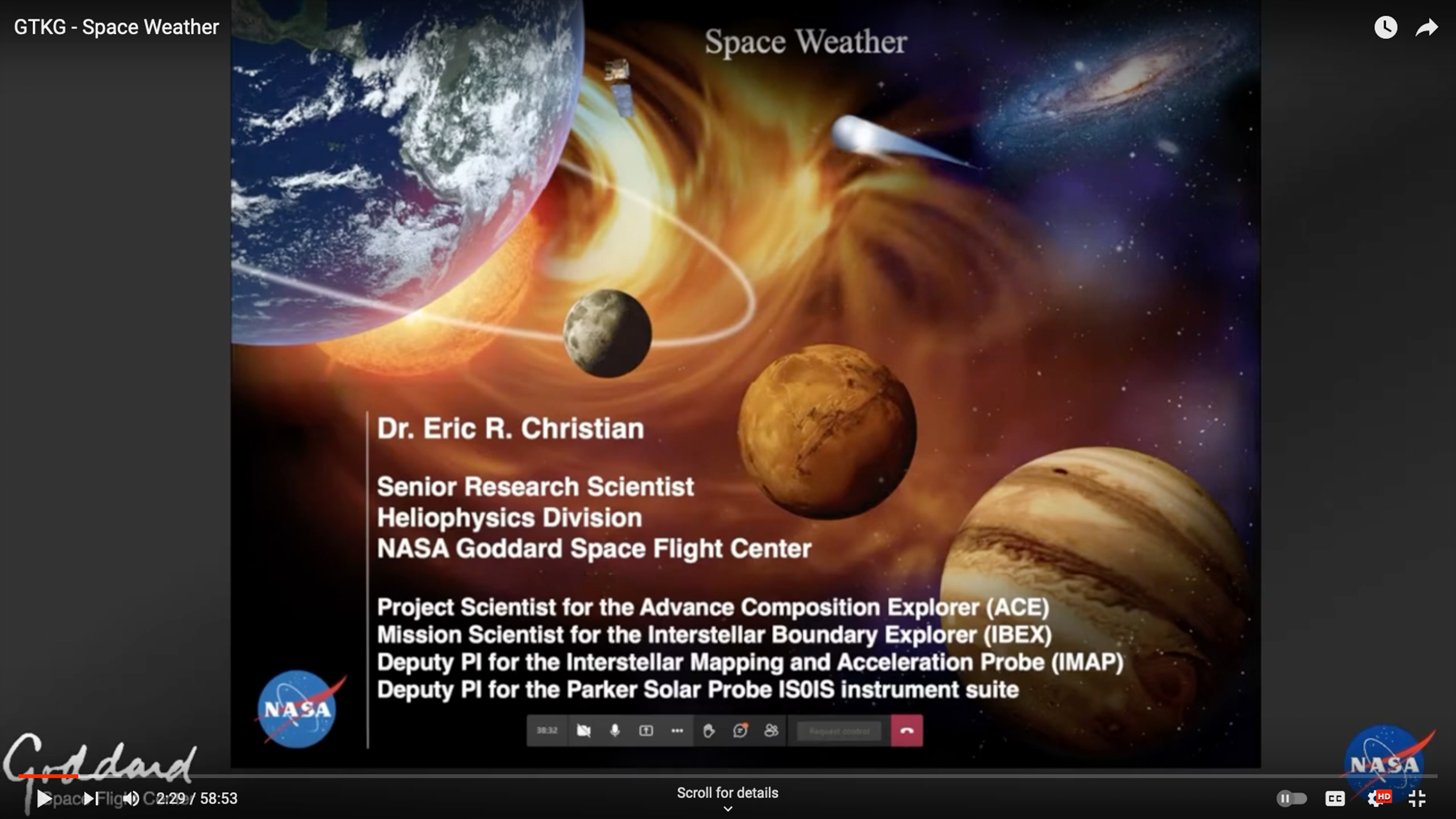Dr. Eric Christian
Senior Research Scientist, Goddard Heliospheric Physics Laboratory
One of the key components of space weather are the energetic particles – pieces of atoms that are traveling at nearly the speed of light. These particles can damage spacecraft and cause a radiation hazard to astronauts. This session will cover what we know about energetic particles, what we don’t know and some plans for the future.
Dr. Eric Christian has a role in major Goddard solar science programs, including the Advanced Composition Explorer (ACE), Interstellar Boundary Explorer (IBEX), Integrated Science Investigation of the Sun (ISʘIS) aboard Parker Solar Probe, and the Interstellar Mapping and Acceleration Probe (IMAP) mission. Dr. Christian has a Bachelor of Arts in Physics and Astronomy from the University of Pennsylvania and a PhD in Physics from the California Institute of Technology.









